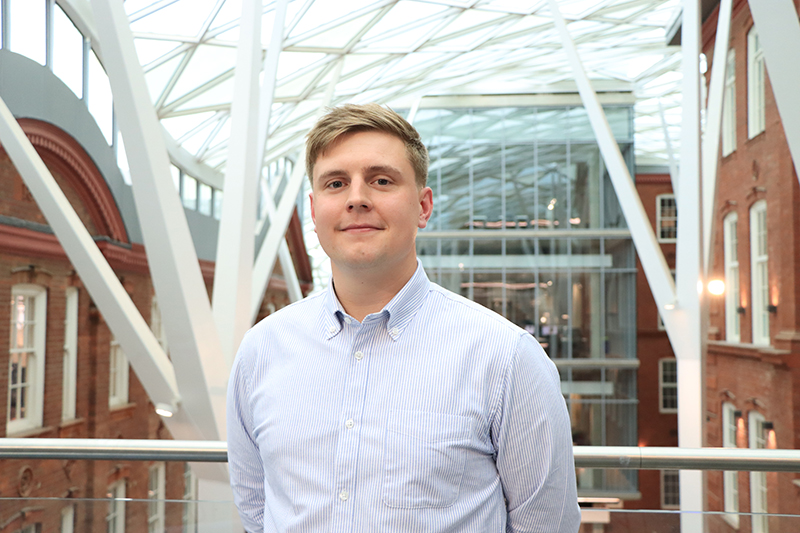
AN academic has told Project Scotland that the public is right to be concerned at the apparent lack of knowledge on which of our buildings contain reinforced autoclaved aerated concrete (RAAC).
Dr Charles Gillott, of the University of Sheffield’s department of civil and structural engineering, revealed that he and his colleagues are developing a new building passport system designed to bring about a centralised database containing information on how each building in the UK is designed, constructed, maintained, and modified. This, he said, would mean future issues could potentially be rectified at the ‘drop of a hat’.
“It would contrast greatly with the situation we’ve currently got,” Dr Gillott said. “The situation we’ve got now is that there might be RAAC somewhere and a load of cash has to be spent to go in and find where it is. Once it’s been found, you have to go in again and see how it’s been put in, consider how it’s going to be taken out, and then you’ve to go back out and do that.”
The academic explained that upon being built, buildings will have information stored such as drawings, a certain amount of design rational, health and safety records, and maintenance plans. However, often this isn’t updated or maintained, meaning if something changes it won’t necessarily be reflected on the record. This is perhaps highlighted by the amount of RAAC being identified in extension areas of schools.
In terms of building passports for new builds, Dr Gillott said it would result in better and more proficient storage of existing information, as well as centralising it and ensuring it is transferable. However, he admits that characterising the existing UK building stock would present a ‘huge amount’ of work.
Tragedies such as Grenfell and the current issues around schools containing RAAC show there is a need for urgency in ensuring the safety of our built environment.
Dr Gillott explained that in the short-term the plan would be to look at building archetypes – such as 1970s apartments or single-unit family homes from the 90s – so that archetype placeholder information can be created to give a rough idea of what is likely to be found in certain buildings, allowing for a tiered approach to data collection.
“For schools, we could split them into different age bands, locations, and sizes,” he added. “From that, you can then get a rough estimation of the likelihood that there is RAAC in there. That then helps to prioritise which buildings you go into (first) specifically. I’m not saying you then don’t go in and look at the buildings at the bottom of the list, but it gives you an order of the most pressing ones.”
Building passports would help prepare for future health and safety issues, and also benefit decarbonisation and the preservation of built heritage. The system would note which buildings contain poor insulation, when it was put in, how it was put in, and how it can be taken out.
‘With building passports it’s much cheaper, quicker, and easier to go in and replace things than it is doing what we do now, which is physically going in and investigating each building one at a time,” Dr Gillott said. “We often actually don’t know what work needs doing until we’re on site and that’s really not conducive with the way the construction sector works.”
The University of Sheffield has already received support for its plans from various consultancies, which Dr Gillott explained are ‘really keen’ to see the implementation of the building passports due to the logistical challenges they face when undertaking refurbishments or creating extensions to existing buildings.
“Consultancies, designers, architects, and engineers are now advocating for building passports – which really is quite an interesting thing, because it’s kind of more work on their part at the front end but actually it saves them, or their future selves, time and money later down the line,” he added.
There is also hope that local authorities in Scotland and the Greater London Authority will look to adopt the system which is still in the early stages.
“We’re in the stage of scoping out what kind of things need to be contained in it and then we’ll go on to look what form that’ll be in,” Dr Gillott added. “We’re toying with different ideas on how the data should be held, who should be responsible for holding that data, and who should have access to it, as well as trying to hone down on exactly what will be stored within these building passports – which things will be optional and which things will be non-negotiable.”









